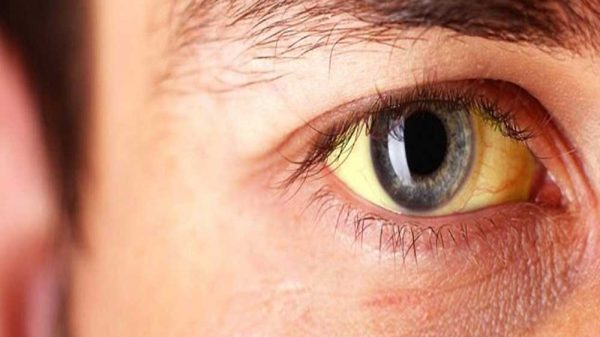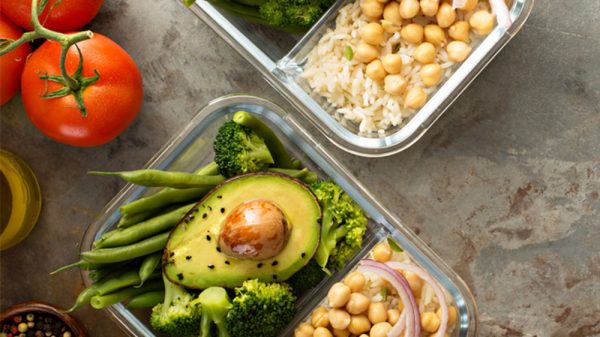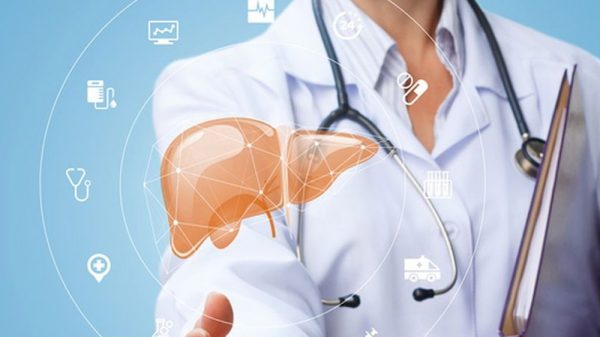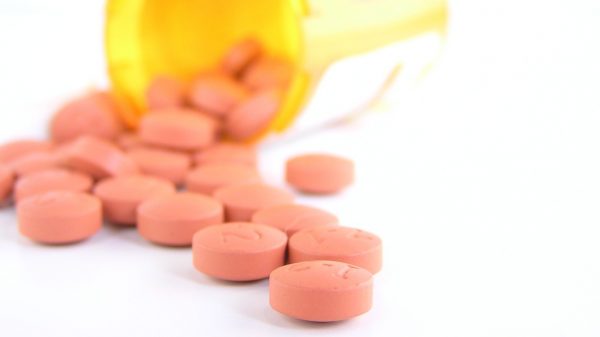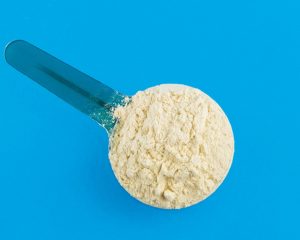If you have been diagnosed with fatty liver disease as a young adult, you are not alone. Nonalcoholic liver disease is increasing in prevalence for all age groups, ranging from children to older adults. If you’re a college student or will be starting college soon, following a healthy diet and lifestyle is especially difficult but also essential for supporting your liver. Keep reading to find out helpful tips for how to eat healthy in college that can also be useful when you enter the working world.
Navigating the College Dining Hall
There’s a reason for the “freshman 15.” Meal plans provide access to dining halls that are packed with endless quantities of junk food and fast food, making it a challenge to avoid weight gain over that first year. It might be difficult to find healthy food in the college dining hall, but it’s not impossible.
Upon walking into the dining hall, every college student is faced with a buffet of ice cream, pizza, fried foods, burgers, and French fries, along with other high-fat, high-sodium, high-sugar foods. Especially if you have fatty liver disease, these foods cause fat accumulation in the liver and contribute to inflammation.
Though not usually as abundant as the unhealthier foods, nutritious options are available when you look closely.
Here are the liver-friendly foods you can typically find in your college dining hall for each meal:
Breakfast Foods
Fresh fruit options are usually limited, with the exception of apples, oranges, and bananas. Sometimes, the dining hall provides a fruit salad containing fruits like melon, blueberries, strawberries, and pineapple. Choose a couple of these fruits to pair with your breakfast for fiber, antioxidants, and vitamins.
The healthiest breakfast option will most likely be oatmeal. Try topping your oatmeal with sliced bananas. If boiled eggs are available, mix chopped eggs whites into your oatmeal for a little extra protein.
Steer clear of the bacon, scrambled eggs, sausage, doughnuts, cereals, granola, and toast. Bacon and scrambled eggs are filled with saturated fat that increases cholesterol and contributes to fat accumulation in the liver. Cereals, granola, doughnuts, white bread toast, and yogurt are high in added sugars or refined carbs that spike your blood sugar, which further contributes to fatty liver disease.
Lunch Options
Sandwiches are popular lunch options on college campuses, but they are often comprised of white bread, processed lunch meats, high-fat cheeses, and high-calorie condiments like mayonnaise.
Instead, head to the salad bar and fill your plate with any available greens, like spinach, kale, or lettuce. Stick to salad toppings such as beans, tofu, and nuts which provide healthy fats and protein. You can also scour the other food stations to see if any whole grains are available, though generally the carbohydrates in the dining halls will be limited to refined grains. Forgo white rice and white bread that contribute to high blood sugar and insulin resistance, which could, in turn, contribute to fatty liver disease.
Dinner
Lean proteins help promote liver health because they contain an abundance of essential amino acids. Grilled chicken breast will likely be the most viable meat option for dinner in the dining hall. Stay away from the fatty cuts of steak, burgers, and hot dogs.
Scope Out the On-Campus Convenience Store, Cafes, and Gym
Sometimes, healthy food options are hiding at venues other than the dining hall. On-campus convenience stores sometimes carry healthy snack foods like rice cakes, popcorn, and peanut butter. Cafes are sometimes stocked with options for trail mix, nuts, and dried fruits.
The gym may also have healthy options catering to athletes and others who are trying to stay healthy. Gym cafes may carry a larger variety of fresh fruits than is available in the dining hall, such as blueberries, strawberries, raspberries, mangos, watermelon, and kiwis. When available, berries are particularly good options for fatty liver disease since they are filled with antioxidants that counteract inflammation. Sometimes gyms also offer smoothies and protein shakes that can be good options when you’re in a rush. However, it’s a good idea to ask what the ingredients are. Most of the time, workers at the cafe will be happy to leave out any added sugars or ingredients that you don’t want.
When looking at food options in convenience stores, it can be tempting to load up on easy snack foods like granola bars, chips, crackers, and cookies. Not only are these foods high in refined carbohydrates and added sugar, but they tend to be filled with preservatives. Both sugars and chemicals like preservatives put added stress on your liver to metabolize them into forms that your body can use, store, or remove. This added stress on your liver can contribute to inflammation and exacerbate fatty liver disease. As a rule of thumb, aim to avoid packaged foods that could contain excess fat, sugars, and preservatives.
Equip Your Dorm Room or Apartment
Invest in a mini-fridge with a freezer and stock it with healthy snacks and quick nutritious meal options. If you have access to a nearby grocery store, make a habit of grocery shopping each week to make sure you have healthy foods on hand. A blender is also helpful for whipping up smoothies when you are pressed for time, while a microwave helps cook quick meals.
Here are key staples to keep in your freezer, fridge, and pantry:
Freezer: Bananas and blueberries are crucial for having on hand for making a quick smoothie in the morning. It’s also useful to buy a bag of kale and keep it in the freezer. In the fridge, kale would easily go bad, but in the freezer, it will last for weeks. Frozen kale is a simple way to pump up the nutritional value of smoothies. Frozen veggie burgers can be microwaved for dinner when you’re in a pinch.
Fridge: Fresh veggies and hummus for dipping is a nutritious snack option that’s filled with protein, fiber, and vitamins. Carrots, bell pepper, cucumber, and celery are tasty and crunchy veggies for dipping. Apples and low-fat, low-sugar yogurts are healthy options to keep in the fridge. Almond milk is a low-calorie alternative to milk that can be used in smoothies and oatmeal.
Pantry: Whole-grain or chickpea pasta, marinara sauce, white beans, black beans, sweet potatoes, microwaveable bags of quinoa, oatmeal, peanut butter, hot sauce, salsa, and your favorite low-fat, low-sodium condiments are key liver-friendly staples. Using the dormitory kitchen to cook pasta and heat marinara sauce with white beans is an inexpensive way to prepare a healthy dinner. Precooked quinoa, black beans, and sweet potatoes can be combined and topped with hot sauce or salsa for a fiber and protein-packed meal. Peanut butter pairs well with apples for a sweet and savory snack.
Getting Adequate Sleep
Sleep deprivation is common in college. Between late-night studying, socializing, and campus events, hitting the sack around 4 am is a common practice. However, getting adequate sleep is critical when it comes to your health and wellbeing. While you sleep, your body fights inflammation and soothes oxidative stress. Because so many reparative processes occur during sleep, it is important for reversing fatty liver disease.
Staying on a regular sleep schedule also helps you avoid overeating. When you stay up late cramming for an exam, exhaustion peaks your appetite and you most likely will require snacks and caffeine to stay awake. Going to bed at a reasonable time every night and waking up early each morning helps you stay productive throughout the day. If you need extra time to study, try waking up earlier instead of going to bed later. Your mind will be refreshed and more able to absorb new material.
Steer Clear of Smoking and Drinking
Unfortunately, smoking and alcohol use are part of the college culture.
Both alcohol and smoking have been shown to cause adverse health consequences such as high blood pressure, liver damage, lung damage, and heart damage. Alcohol directly causes liver inflammation that leads to fatty liver disease. Even alcohol and cholesterol are related, with heavy drinking showing an association with poor cholesterol levels.
Don’t let the college culture persuade you into using alcohol or smoking. Just because others are doing it, this does not mean that you have to partake. You can often find like-minded students who are either struggling with health issues of their own or choose not to drink or smoke due to other reasons. Either way, it’s important to surround yourself with students who support your needs, goals, and values and don’t try to steer you in the wrong direction.
Managing Stress
Without a doubt, college is stressful by default. Managing a health condition on top of academic demands and pressures of living on your own for the first time can cause your stress levels to skyrocket. Psychological stress has a physical impact and is associated with inflammation and oxidative stress. So, it’s important to keep stress levels in check, which will help you manage fatty liver disease more effectively. Some college campuses offer yoga and meditation classes, while all colleges provide resources for mental health care. It’s helpful to visit a counselor to learn about strategies for managing stress.

You Can Reverse Fatty Liver Disease While in College
Can the liver repair itself? Absolutely, and it can repair itself while you’re in college. The liver is a highly elastic and able to bounce back following injury. When navigating college food to promote liver health, it just takes a little bit of strategy and discipline.
Added Benefits of Eating Healthy in College
In addition to helping improve fatty liver disease, a healthy diet and routine will improve your mental focus, support your academic performance, and ultimately help you make the most out of your college career.
Conclusion
Though the stresses of the college environment make it difficult to eat healthy, it is possible. By making healthy choices and eating a balanced diet, you can reverse fatty liver disease while in college.
